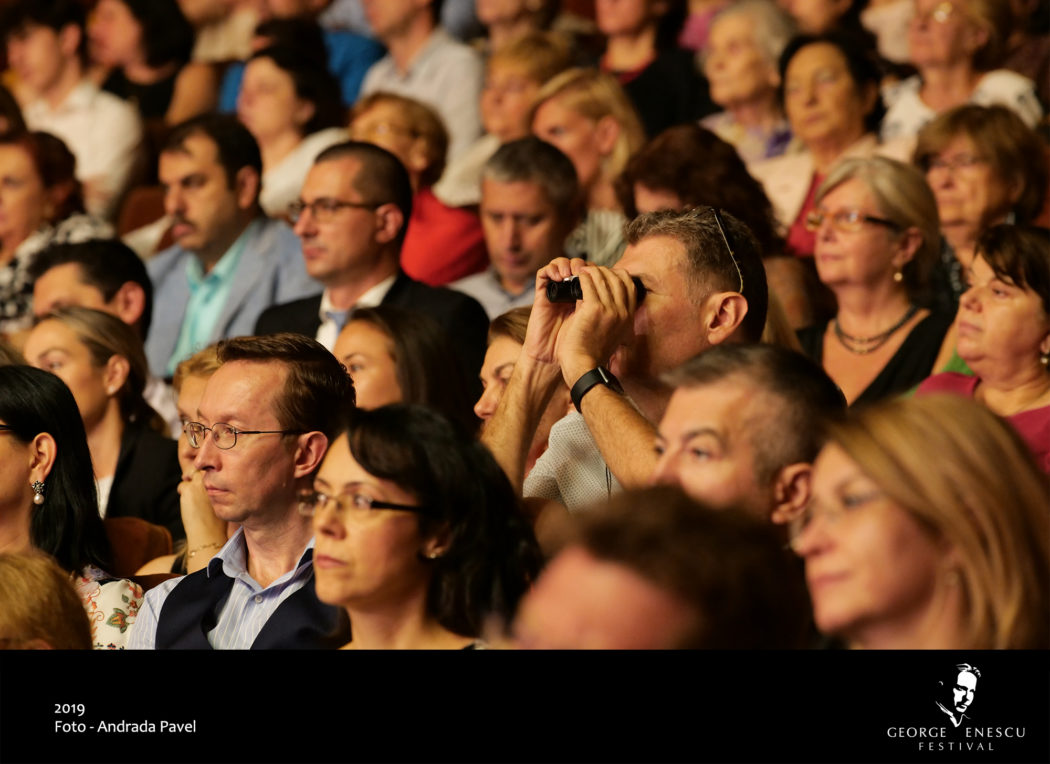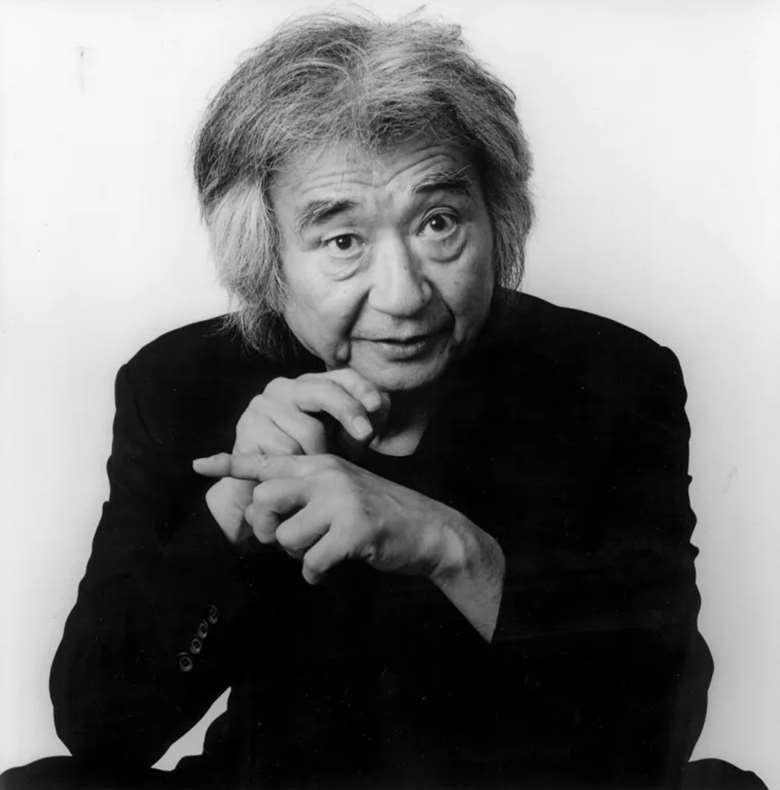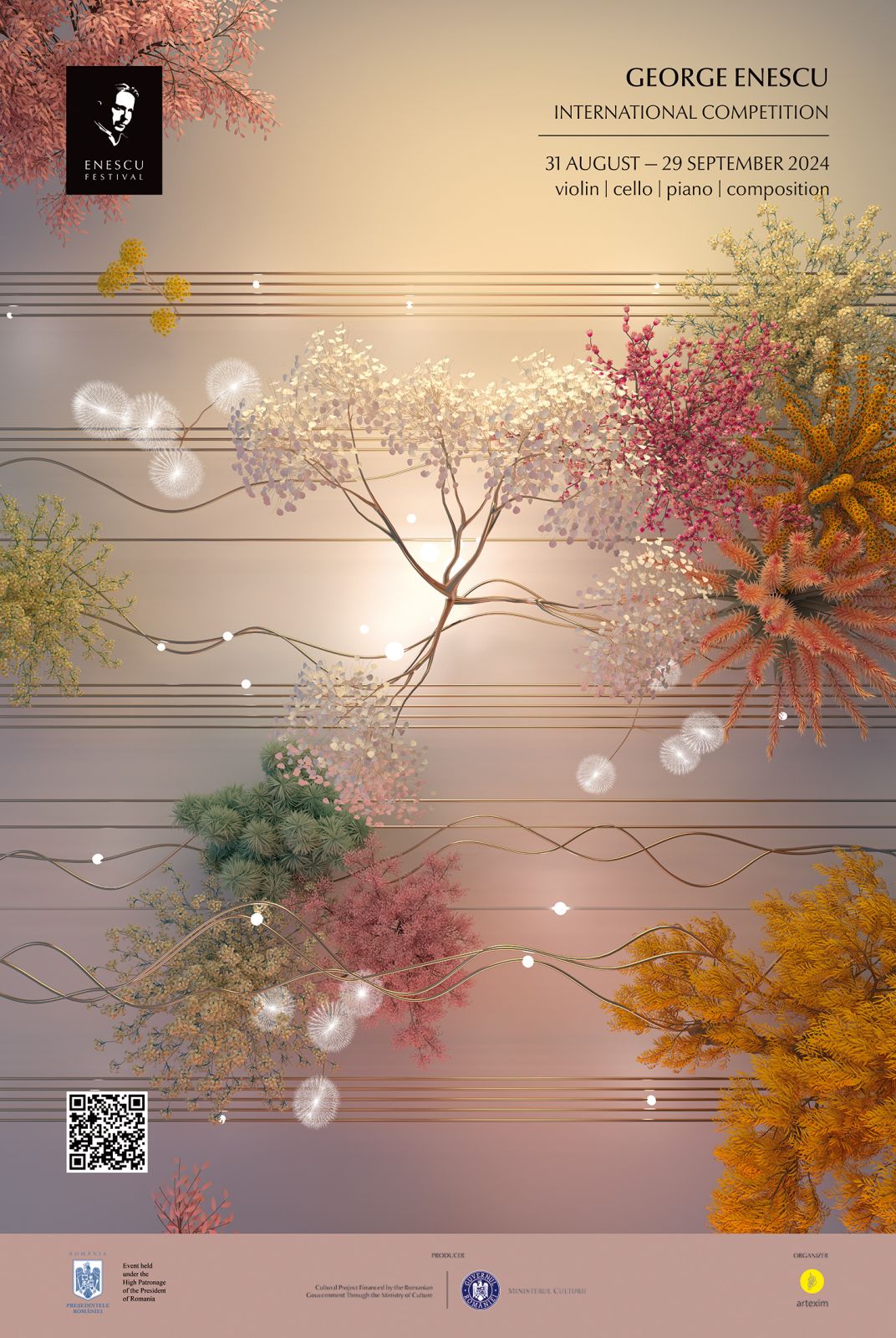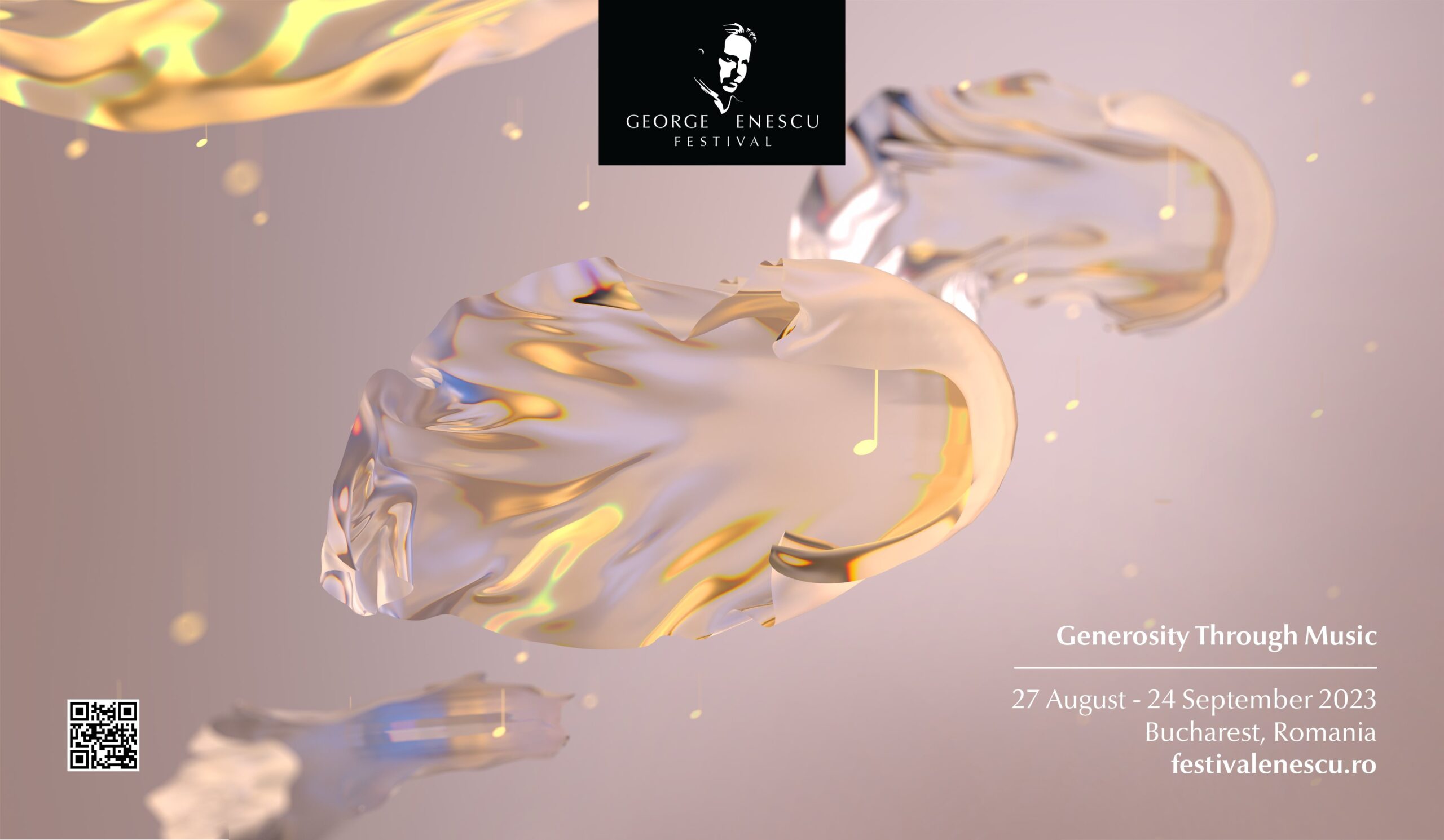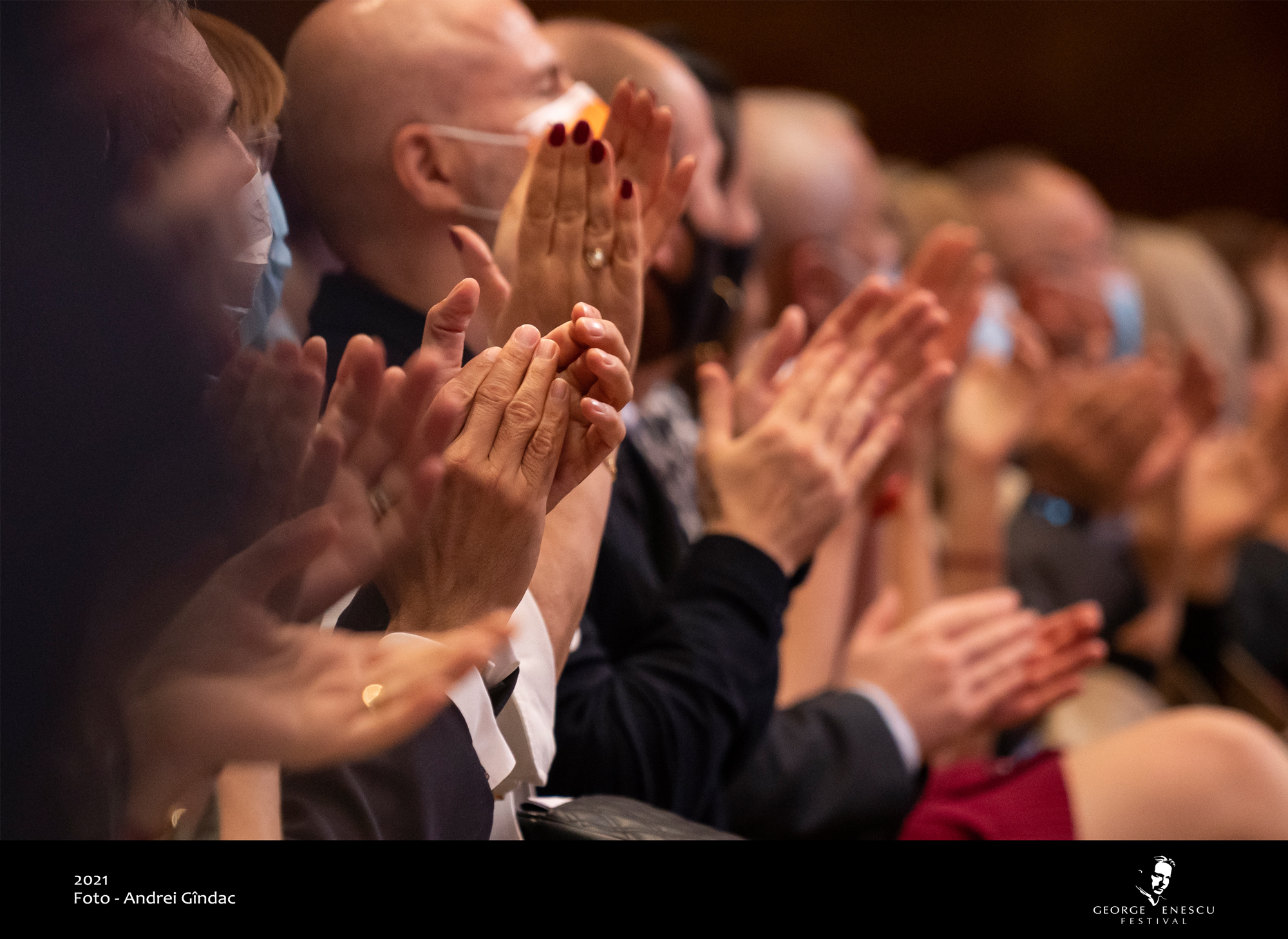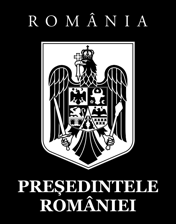20th September’s programme begins with a new conference from the International Composers Forum series. At 10:00 A.M., you can watch live on Enescu Festival’s website (https://www.festivalenescu.ro/live/) or directly in the Forum hall at The Bucharest National University of Music, the conference held by Nicola Piovani (Italy), one of the most important contemporary Italian composers, the winner of one Oscar in 1998 for La Vita è bella film soundtrack by Roberto Benigni. The Italian composer will talk about his own ars poetica, representative for his compositional style, the talk being followed by questions and answers. The moderator of the session is the composer and professor Dan Dediu.
A few hours later, Nicola Piovani will be witnessed conducting his own musical compositions with “Banatul” Philharmonic Orchestra from Timișoara, in the concert beginning at 3:00 P.M in the Radio Hall, as part of the Music of the 21st century series.
The programme is a great occasion for the public to discover pieces signed by contemporary authors with many works in the field of film and theatre music. The first work is Reimagining Vivaldi (Vivaldi Reimaginat) – by Max Richter, conductor Marco Angius. The violin part will be performed by Anna Tifu, the winner of George Enescu Competition in 2007. Following on, two pieces composed by Nicola Piovani: Il canto dei neutrini for cello and orchestra and Suita Fellini, directed by the Italian composer himself. The soloist will be the cellist Yibai Chen, winner of the International „George Enescu” Competition in 2018.
Nicola Piovani is an Italian light-classical musician, theater and film score composer. Besides the Oscar-winning soundtrack of La vita e bella, N. Piovani is also the author of an impressive number of film music pieces which have become very famous. Among his more popular works is the score for the Federico Fellini film Intervista, his second of three collaborations with the famous director, the others being Ginger e Fred and La voce della luna. He also composed a ballet titled Balletto Fellini. In 2000, his score for La Vita è bella was nominated for a Grammy Award. To date, Piovani has over 130 film scores to his credit, including the following films: Slap the Monster on Page One (1972), The Perfume of the Lady in Black (1974), Flavia the Heretic (1974), Le Orme (1975), A Leap in the Dark (1980), The Night of the Shooting Stars (1982), and Kaos (1984). Although less known than his film music, N. Piovani’s portfolio also contains many orchestral and chamber music compositions. In 2005 he was a member of the jury at the 27th Moscow International Film Festival. In light of his succesful collaboration with many French directors, notably Danièle Thompson, Philippe Lioret, and Éric-Emmanuel Schmitt, the French Minister of Culture gave him the title of Chevalier de l’Ordre des Arts et des Lettres at the Cannes Film Festival in 2008.
Max Richter (born 1966) is a German-born British composer, who stood out among young generations through his unique creations, which mix contemporary classical and alternative popular musical styles. M. Richter is classically trained, having graduated in composition from the Royal Academy of Music, and studied with Luciano Berio in Italy. He also composes music for stage, opera, ballet and screen. He collaborates with other musicians, as well as with performance, installation and media artists. He has recorded eight solo albums and his music is widely used in cinema. The score created for Waltz with Bashir film, by Ari Folman, won the Golden Globe in 2007. He also scored the independent feature film Henry May Long (2008) and wrote the music for Feo Aladag’s film – Die Fremde. In 2010 he made a remix between Dinah Washington’s This Bitter Earth and his own composition On the Nature of Daylight for the Martin Scorsese film Shutter Island. Other tracks – Europe, After the Rain, The Twins (Prague), Fragment, and Embers – were used in the BBC documentary Auschwitz (2005). Richter also wrote the soundtrack to Peter Richardson’s documentary, How to Die in Oregon and the score to Impardonnables (2011) directed by André Téchiné.
An excerpt of the song “Sarajevo” from his 2002 album Memoryhouse was used in the international trailer for the Ridley Scott film Prometheus. ”The notes of his music seem to reach for a place somewhere beyond the mortal world…” said The New Yorker about Max Richter’s compositions.
The programme of the day continues with a performance from the Mozartweek in Residence series. Camerata Salzburg will perform at 4:30 P.M. on the Romanian Athenaeum’s stage, with a range of works by W.A. Mozart. Soloists: Pauliina Tukiainen – piano, Akiko Suwanai – violin, and Timothy Ridout – viola. Arias with tenor Rolando Villazón and soprano Mojca Erdmann.
In the programme: Symphony no. 35 in D major K 385, “Haffner” (1st movement), arias: Il mio tesoro (Rolando Villazón), Bella mia fiamma (Mojca Erdmann), Dove mai trovar al ciglio (Rolando Villazón), Sinfonia Concertante for Violin and Viola in E flat major K 364/320d, arias: Ch´ìo mi scordi di te (Mojca Erdmann), Va dal furor portata (Rolando Villazón), Symphony no. 35 in D major K 385, “Haffner” (2nd, 3rd and 4th movement).
Camerata Salzburg was founded in 1952 by teachers and students of the Salzburg Mozarteum. The ensemble was able to quickly establish itself, with its Mozart Matinees soon becoming the main attraction of the Salzburg Festival. The founding father of the Camerata was conductor, music pedagogue, and musicologist Bernhard Paumgartner who sought out to preserve as well as to revive the ethos of classical and classicistic music. The distinct musical style of Camerata was formed over a period of six decades through its continuous collaboration with world-renowned musicians such as Géza Anda, Sándor Végh, Sir Roger Norrington and András Schiff. Famous musicians, including Clara Haskil, Dietrich Fischer-Dieskau, Heinz Holliger, Aurèle Nicolet, Wolfgang Schneiderhan, Christoph Eschenbach, Philippe Herreweghe, René Jacobs, Franz Welser-Möst and Peter Ruzicka performed with the Camerata Salzburg a wide variety of music. The orchestra is one of the regular guests of the Salzburg Festival and the Mozart Week, offering concerts and operas alike in the city of Mozart’s birthplace. The orchestra performs regularly in venues such as the Konzerthaus Vienna, the Elbphilharmonie Hamburg, the Konzerthaus Berlin, the Festspielhaus Baden-Baden, the Festspielhaus Bregenz. Touring the world, Camerata Salzburg played in the cities of Munich, London, Florence, Moscow, St. Petersburg, Beijing and Tokyo, and in the festival cities of Aix-en-Provence and Lucerne. Camerata Salzburg made more than sixty recordings which have been honoured with many prestigious awards. Its two complete editions of Mozart’s piano concertos with the Hungarian pianists Géza Anda and András Schiff, and also its complete recording of Mozart’s serenades, and divertimenti conducted by Sándor Végh, are milestones in the history of classical recording.
The German soprano Mojca Erdmann is a rapidly rising star in the international music scene, praised by critics and loved by audiences for her beauty of tone and impeccable artistry. She is known for the versatility of her repertoire, ranging from baroque to contemporary music in a natural way. In the 2018-19 season, she has concerts in Copenhagen with the Danish National Symphony Orchestra (Brett Dean: From Melodious Lay) and in Tokyo with the Bach Collegium of Japan, in Israel with IPO under the baton of Maestro Zubin Mehta. Further concert engagements take her to Zurich, Munich, Dresden, Bremen, Heilbronn, Hof, Linz and Salzburg with Mahler’s Symphony No. 4, Haydn’s Creationor Brahms’ Requiem, to name but a few highlights.
The representation of the opera Moses and Aaron by Arnold Schönberg takes place at the Grand Palace Hall from 7:30 P.M., performed by the Philharmonic Orchestra of “George Enescu”, conducted by Maestro Lothar Zagrosek and the Choir of the “George Enescu” Philharmonic, conducted by Maestro Iosif Ion Prunner, together with the ensemble Vocalconsort Berlin. The show includes multimedia projections created by Nona Ciobanu and the architect and visual artist Peter Košir.
The opera Moses and Aaron is one of the premieres included in this edition of the International George Enescu Festival. The work of Arnold Schönberg is considered to be a masterpiece of modern music, and also a musical and social manifesto. In the Moses and Aaron opera the concepts of twelve-tone technique and serialism, developed by Schönberg, are being used. The libretto transforms the biblical story into a confrontation between the thoughts and the words of God, Moses being the messenger of the Thoughts, and Aaron of the Words. The separation of Aaron from the essence of the Thoughts, which Moses would have wanted to convey to the ones who were supposed to save them from Egypt, leads to the conflict between the two.
“In the visual scenario built together with the architect and visual artist Peter Košir, we start from the conflict between thought and word, idea and its representation, worldly and outer-worldly. The image, together with its interpretation, can become an instrument of manipulation in politics and religion”, says director Nona Ciobanu.
The distribution: Robert Hayward – Moses (speaker), John Daszak – Aaron (tenor), Julia Sporsén – young girl (soprano), Michael Pflumm – young boy (tenor), Catherine Wyn-Rogers – sick woman (alto), Christian Rieger – man (baritone), Gabriel Rollinson – ephraimite (bas), Ralf Lukas – priest (bass), Polina Pasztircsák – second naked virgin (soprano), Anna Nedorezova – third naked virgin (alto).
The programme of the day closes with the concert of Les Talens Lyriques, under the leadership of conductor Christophe Rousset, on the Romanian Athenaeum’ s stage from 10:30 P.M., playing a masterpiece by Händel – ”Iulius Cezar in Egipt”.
In the distribution: sopranos Karina Gauvin and Ann Hallenberg, counter-tenor Christopher Lowrey, counter-tenor Kacper Szelążek, mezzosoprano Eve-Maud Hubeaux and bass Ashley Riches.
The French ensamble Les Talens Lyriques was formed in 1991 by the harpsichordist and conductor Christophe Rousset. The instrumental and vocal ensemble took its name from the subtitle of Jean-Philippe Rameau’s opera – Les Fêtes d’Hébé. Championing a broad vocal and instrumental repertoire, spanning the period from early Baroque to the beginnings of Romanticism, the musicians of Les Talens Lyriques aim to throw light on the great masterpieces of musical history, while providing perspective with rarer or little known works that are important as missing links in the European musical heritage. The repertoire of Les Talens Lyriques includes works by Monteverdi, Cavalli, Landi, Handel, Lully, Desmarest, Mondonville, Cimarosa, Traetta, Jommelli, Martin y Soler, Mozart, Salieri, Rameau, Gluck, Beethoven, Cherubini, García, Berlioz, Massenet, Gounod and Saint-Saëns.
In the 2018-2019 season, Les Talens Lyriques launched the project “The Temptation of Italy”, with famous masterpieces by Monteverdi, Purcell, Handel (Agrippina) and Mozart (La Betulia liberata), and also rarely heard or unpublished scores by Legrenzi (La Divisione del mondo), Salieri (Tarare), Leo and Porpora.
Press contacts:
[email protected], + 40 746. 124. 388
[email protected], + 04 758. 236. 015
[email protected] , +40 745. 160. 011
About “George Enescu” International Festival
Having reached its 24th edition, George Enescu International Festival will take place between 31 August and 22 September 2019. In the Bucharest concert halls we will see over 2,500 of the most valuable musicians of the world, coming from 50 countries, and 84 concerts and recitals will be presented. This year’s edition of the festival has a total number of 34 figures coming to Romania for the first time: 25 artists, including Marion Cotillard, Kirill Petrenko, Mitsuko Uchida, and nine world-class orchestras.
The 2019 edition of George Enescu International Festival awaits its audience in the Palace Hall, at the Romanian Athenaeum, the Radio Hall and the Small Palace Hall, to concerts and recitals grouped under six sections: “Great Orchestras of the World”, “By Midnight Concerts”, “Recitals and Chamber Music”, “21st Century Music”, “Mozart Week in Residence” and “International Composers’ Forum”. Concerts and events will also be organised in the Festival Square, along with conferences, record releases and book launches, and extraordinary shows.
For more details: https://www.festivalenescu.ro/
